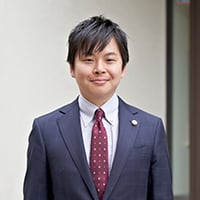Section 3: Let’s talk about fees
Section 1 : “Are you talking to the Right Lawyer?”
Section 2 : “Before your first legal consultation”
What attorneys charge and why
Previously, any attorney practicing law anywhere in Japan had a fixed set of fees, but this system has since been liberalized and today a Japanese attorney is free to charge whatever he/she decides is appropriate. As a result, different attorneys will charge different rates. So let’s look at the main ways Japanese attorneys get paid: retainers and contingency fees, and charging for their time.
When you engage the services of an attorney, it is important to first have a clear explanation of their fee structure. It can be an important factor in deciding which attorney to retain – do they do a good job of explaining their fee structure?
Retainers and Contingency Fees
Retainers (also referred to as commencement fees) and contingency fees are the standard way that Japanese attorneys get paid. When you engage (i.e. ‘retain’) an attorney, you can expect to pay a fixed fee, with a contingency fee payable at the end of the proceedings, usually dependent on the result.
– Retainers (Commencement Fees)
A retainer – sometimes referred to as a commencement fee – is triggered when the services of an attorney are retained. This fee essentially pays for the attorney to go to work on your behalf. So even if you go to court or arbitration but the result does not go your way, this fee will not be refunded.
– Contingency Fees
As the name suggests, a contingency fee is contingent on the final result of any actions undertaken by the attorney on your behalf towards resolving the matter at hand. This is often calculated as a percentage of any potential economic gain you may accrue due to the result of said actions.
Charging for Time
This is a simple time-based equation for calculating how much an attorney will charge for their services: time spent working on the case x the unit cost/time for each attorney engaged. When a clear economic gain at the resolution of the matter is difficult to calculate, or when the amount of work on a case can fluctuate, this method of calculating fees is quite common, such as when the experience and/or knowledge of an attorney is required at a specific instance, for a specific duration. Conventionally, charging for time is typical for provision of legal services to corporations.
What is an Engagement Agreement?
When an attorney is retained by a client, the terms and conditions of the engagement are defined in an Engagement Agreement (also known as Retainer Agreement (委任契約書(ininkeiyakusho)). The Japan Federation of Bar Associations has defined the following fundamental stipulations regarding professional duties for attorneys:
Whenever an attorney is retained for a case, an Engagement Agreement shall be drafted that fully and clearly states all payable fees. However, should prevailing circumstances mean that drafting said Engagement Agreement proves challenging, the Engagement Agreement may be drafted once said circumstances have been resolved.
There are some exceptions to this article, but as a general rule when an attorney is retained, the Engagement Agreement should clearly state all payable fees in full. In the event that you decide to engage an attorney and they do not produce an Engagement Agreement that clearly states all payable fees, be sure to request this agreement before moving forward. These Engagement Agreements are probably going to be in Japanese – there is no obligation for these documents to be in English – so if there is anything that you do not understand be sure to ask questions until you are satisfied with the answers. Unless it is a very complicated case, the Engagement Agreement is a simple contract that should run to no more than one or two pages of A4.


